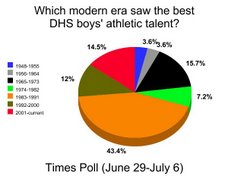In Dorchester, we are fortunate to have a great school with first-rate facilities, caring educators and administrators, and involved parents. We wouldn't trade our school for all the Class A or Class B state aid money in the world.
That said, there's always room for improvement. (And ensuring K-12 school improvement is much more important than the stuff you're looking at on Facebook or Twitter.)
Over the years, taxpayer-funded public schools have shifted some of their focus from the difficult stuff (math, science, problem solving, reading, and writing) to more feel-good social-based learning. Some of this is due to state and federal mandates; some because of our changing society and poor parenting practices, including failure to discipline children or pass on traditional moral standards.
Here are the results of that shift in educational priorities: Based on 2018-19 school year data (prior to the China-produced pandemic), Nebraska students were only:
- 52% proficient in English (reading and writing);
- 52% proficient in math; and
- 66% proficient in science.
According to the Nebraska Department of Education's assessment of Dorchester Public School for that same school year (the agency's yearly assessments have taken a pause during the pandemic), DPS' middle school "needed improvement," while the high school test scores indicated things were "good" -- but not "great" or "excellent."
Meanwhile, DPS students in the 2018-19 school year underperformed their state peers in English (reading and writing), with only 43% testing at the required proficiency level. That number was 44% in science and 29% in math. The good news is DHS students who took the ACT easily outperformed the state average -- an indicator that Dorchester's best and brightest are indeed learning a lot inside the classroom.
School district taxpayers are urged to keep an eye on these statewide assessment scores as they are updated in post-COVID-19 school years. Keep in mind that when the state's education department says "needs improvement," that burden falls equally on educators, administrators, school board, and parents.



















































No comments:
Post a Comment
Village Dweller checks all reader comments to determine if they are appropriate for print.